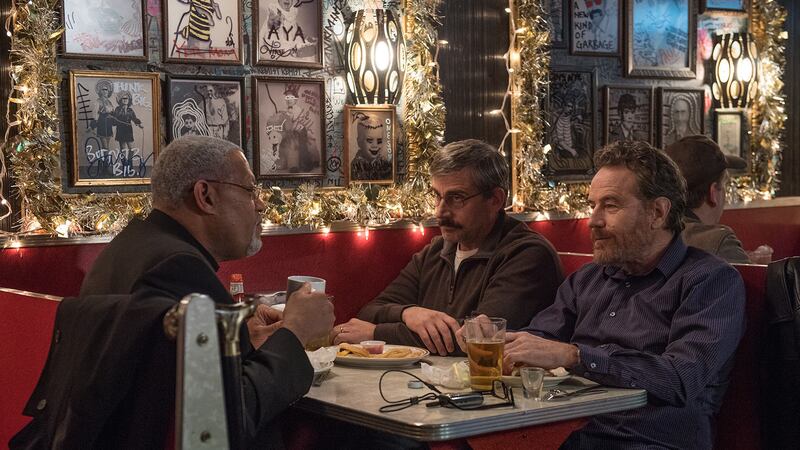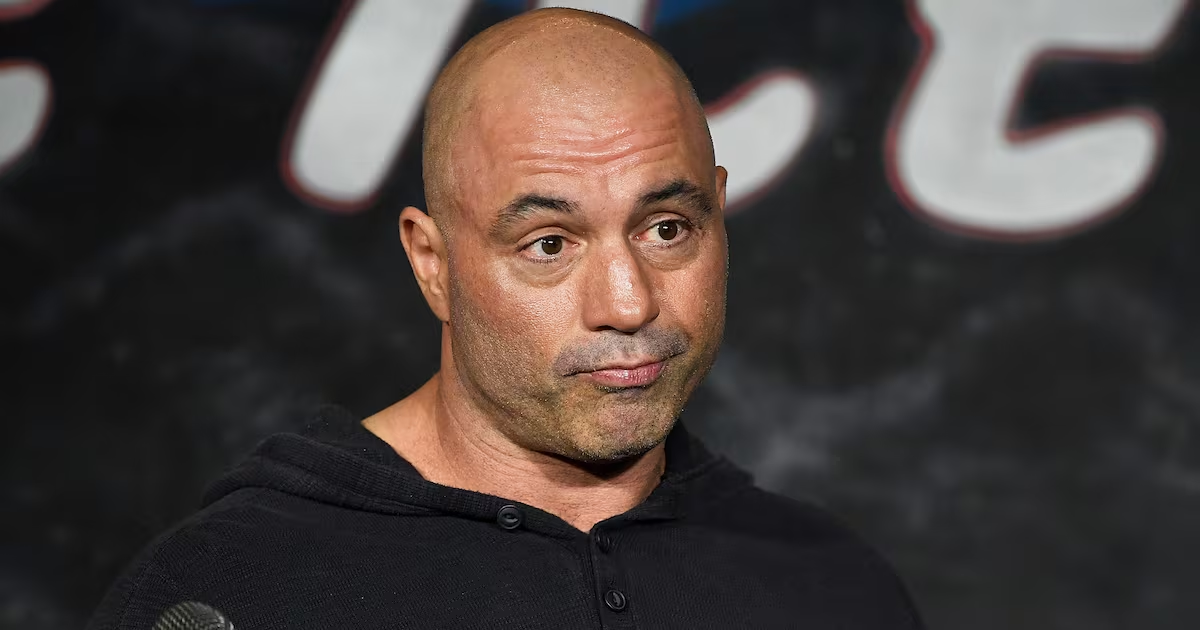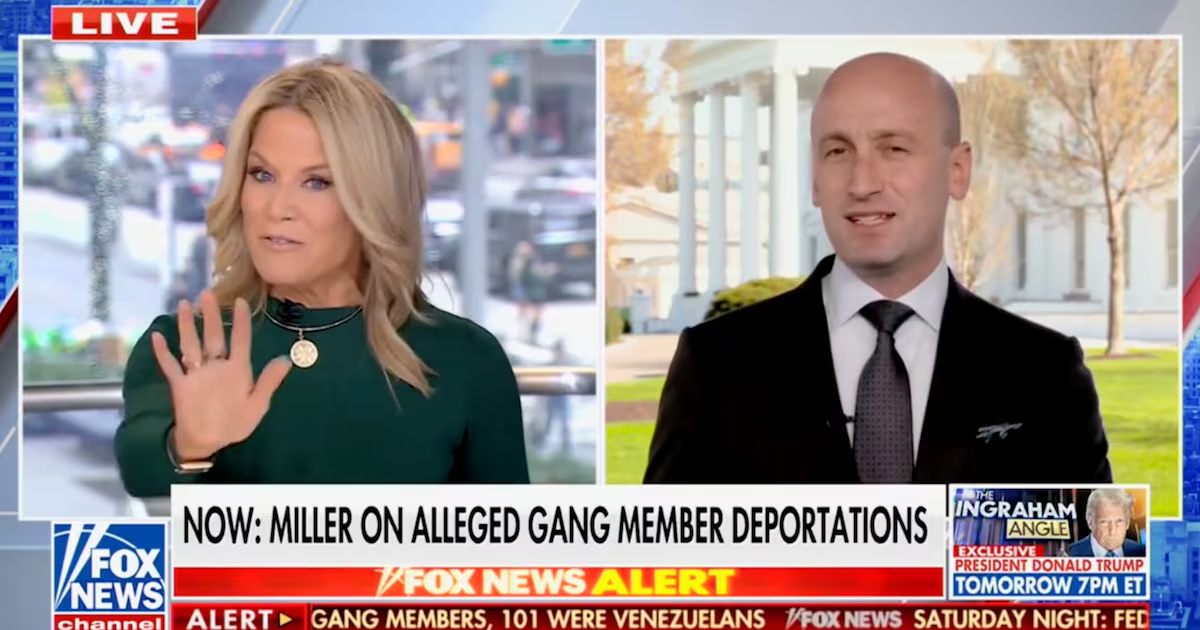When he first began working on his newest film, Richard Linklater never could have imagined that it would be coming out in the middle of a national conversation about both respect for the American flag and the families of fallen soldiers.
“But this bubbles up in our culture,” he says, recalling decades-old stories about politicians who want to make flag-burning illegal. As recently as this past November, Donald Trump tweeted, “Nobody should be allowed to burn the American flag - if they do, there must be consequences - perhaps loss of citizenship or year in jail!”
“No, people died for your right to burn the flag,” Linklater says in response. “This shit’s been going on forever. It’s a new incarnation of the same rhetoric, the same shallow slogans. What does patriotism mean? Who owns the flag?”
Those questions are at the center of Last Flag Flying, which arrives in theaters this Friday.
The sky is raining ash from the wildfires still raging across Northern California when Linklater and I sit down at the Ritz-Carlton in San Francisco on an October afternoon to discuss the latest film in his long and varied career. It had just screened at the Mill Valley Film Festival the night before and the director was in good spirits despite the apocalyptic atmosphere around him.
Most Linklater films are defined by the way they play with time. Dazed and Confused takes place over the course of one day. Before Sunrise, which also occurs over one day, was followed in nine-year increments by the sequels Before Sunset and Before Midnight. 2014’s Oscar-winning Boyhood was filmed bit by bit over 12 years with the same group of actors.
Based on the novel of the same name by Darryl Ponicsán, Last Flag Flying plays with time in a different way. That book, released in 2005, serves as a sequel of sorts to Ponicsán’s debut novel The Last Detail, written 30 years earlier. Just as those two books are in dialogue with each other, Linklater’s Last Flag Flying echoes Hal Ashby’s 1973 film adaptation of The Last Detail.
Set in 2003, the new film follows three Vietnam War veterans—played by Bryan Cranston, Steve Carell and Laurence Fishburne—who reunite to help put to rest Carell’s character’s son, who has been killed while serving in Iraq. Though the names have been changed, those three are versions of the characters portrayed by Jack Nicholson, Randy Quaid and Otis Young in the earlier film.
“I guess this is kind of my war movie,” Linklater said during a panel discussion in London earlier this month. “There’s not a battle scene or anything, but this is probably the closest I’ll ever get to a war movie.”
When Linklater read Ponicsán’s book he thought that if he ever was going to make a “war movie,” this would be the right source material. “It comments on those wars without being those wars, those two wars,” he says of Vietnam and Iraq. “It’s funny, but also kind of angry.”
As Sal Nealon, an alcoholic bar owner, who, as Linklater puts it, will “take a bullet for you but he’s a total pain in the ass,” Cranston carries most of the comedy. Carell, as the grieving father Larry “Doc” Shepherd, gives a much more interior and devastating performance, further burnishing his credentials as an actor to be taken seriously.
“You couldn’t get a bigger contrast between Cranston and Carell’s characters and the way they both approached it,” Linklater says. “Bryan was like, ‘I know this guy, Sal!’ We all know him.”
“Carell on the other hand was like, ‘Why do you think Doc’s doing that?’” he continues. “And I was like, ‘I don’t know, man. I don’t think Doc even knows why he’s doing that, why he’s looking up these guys.’ And Carell liked that.”
Linklater describes Fishburne’s character, the one-time wild man turned reverend Richard Mueller as “kind of in between,” adding, “He has that crazy background like Sal, but then he’s self-medicating, maybe in another way.”
There’s a key moment early in the story when Carell’s character is trying to decide whether or not he wants to look at his dead son’s body. A colonel has advised against it, and Fishburne, standing to Carell’s left, agrees. Cranston’s character, standing to his right, urges him to do the opposite.
“I thought, this is too perfect,” Linklater says of the angel and devil on your shoulders image that is created on screen. “It makes sense for [Doc] to be in the middle there. You can feel the audience, when Mueller says his part, ‘Remember him as he was.’ And then we cut to Cranston. Even before [he speaks], the audience starts laughing. Here comes the other opinion, here we go.”
Like so many Linklater films, the characters spend most of their time talking. But this presented a unique challenge for the director, because, as he explains, soldiers “don’t really like to talk about” the atrocities they experienced. “That’s how my dad was,” Linklater says. “He caught the end of the Korean War. Steve Carell’s dad was a World War II guy. And they don’t talk much about it. So there’s a lot of unspoken unknowns.”
“Something bad happened, it sucked for all these guys, they weren’t at their best, you get the idea,” he says of tragedy that lives beneath the surface of the story. “But that’s kind of how war feels. ‘It was just fucked up’ or ‘it’s just awful.’ It all falls into one category of unfortunate mess.”
As he began to circle the project, Linklater knew that it would have a lot to say about the meaning of patriotism. “You can love your country and respect the people who serve and still question the military,” he says. “This movie does have all the mixed feelings and I hope anti-war sentiment. But you can still go, no, I’m an American and I do respect the people who so willingly put themselves out like that.”
“I wish that our leadership shared [that sentiment],” he adds. “I wish there was a reciprocity there that often isn’t. That’s the difference between a progressive and a conservative. A progressive would want us to do better,” as opposed to the type of “blind patriotism” you see from some on the conservative side.
But Linklater says he hopes people on all sides of the political spectrum get the same thing from watching the film. “Hopefully they’ll care about the people who they’re looking at and admit that they went through—both as Marines back in Vietnam and as a parent now—that you get kind of dragged through your country’s decision-making. And it does have an effect.”
So far, Linklater has been extremely gratified and a bit relieved that the members of the military who have seen the film in early screenings “tend to like it” because it “captures that love-hate thing that they all have” about their various experiences.
“They find it very cathartic, I hear the word ‘healing’ a lot,” he says. “That wasn’t foremost on my mind making it, but it was like, in a way maybe it was some kind of sublimated impulse.” Because the Iraq War “was such an open wound” when he first started thinking about the project all the way back in 2005, he says he had “mixed feelings” about making it. “So I think there is some healing element and it’s better now than it would have been back then,” he adds.

Laurence Fishburne, Steve Carell and Bryan Cranston in a scene from 'Last Flag Flying.'
Amazon StudiosIt does seem as though Last Flag Flying has a better chance at box office success than many of the Iraq War movies that came out while the fighting there was still at a fever pitch. Films like Lions for Lambs and In the Valley of Elah, both released in 2007, failed to connect with audiences. Even a critical success like Kathryn Bigelow’s The Hurt Locker, which came two years later, was the lowest-grossing Best Picture winner in Oscar history.
“When a movie comes out in the middle of national catastrophe or something, it’s too urgent, too immediate, you can’t really see that,” Linklater explains. “You have too much piling onto the movie you’re watching. Whereas now I think there’s enough distance.”
That distance, on top of the reality show that is President Donald Trump, has also transformed many Americans’ perceptions of George W. Bush.
Late in Last Flag Flying, when Carell’s character “Doc” rails against Bush for leading the country into an unnecessary war, his passion is almost jarring. Oh yeah, some progressive viewers might be left thinking, we used to really hate that guy.
“It’s so weird. Could we just have that great statesman George Bush back in office?” Linklater says, laughing.
Linklater says in retrospect he doesn’t believe his fellow Texan is necessarily a “bad guy,” but he does see him as “a guy over his head who made some bad decisions” including the “huge mistake” that was the Iraq War.
“With Trump, I wouldn’t say that,” he hastens to add. “You can’t say he’s not a bad guy. It’s a personality disorder playing out at a massive scale.”
After finishing Last Flag Flying, Linklater immediately moved on to what he calls “one of the more grueling, bigger conceptual movies” he has ever attempted: Where’d You Go, Bernadette, based on the 2013 novel of the same name by Maria Semple and due in theaters sometime next year. The film stars Cate Blanchett as a mother who goes missing ahead of a family trip to Antarctica.
Next up after that is a “super big, multi-part TV thing” that Linklater has been thinking about for 20 years. Nearly three decades after he first disrupted the indie film landscape with 1991’s Slacker, he finally feels ready to join the many other major filmmakers who have entered television over the past several years. “I’m still a feature film guy, for sure,” he says. “It’s just when you look up and your feature film is 12 hours,” it makes more sense to do it as a serialized narrative.
Linklater also says it’s “quite possible” that he will revisit the characters from Boyhood, which, three years on feels more and more like it was robbed of a Best Picture win by the emotionally inferior Birdman. “He’s in college now,” he says of Ellar Coltrane’s Mason, who was just six years old when they started shooting. “The twenties are interesting. It’s quite possible.”
“It wouldn’t be the same,” he adds. “That twelve-year structure was dictated by the American public school system, first through 12th grade. The next structure, who knows what that would be? But it’s fun to think about that.”
Similarly, he says the Before trilogy, as it is known, may have more to come. “It just kind of floats out there as a possibility,” he says. Those three films each premiered nine years apart, starting in 1995, which means the next one could be due in 2022, when the characters would be in their early fifties. “Usually it takes years to kind of have an idea and feel like Jesse and Celine have something to say.”
“It’s good to have things out there that feel like they’re not quite over,” Linklater adds, a broad smile forming across his face. “It’s not a bad way to go through life, because you feel like you’re in touch, that they’re still talking to you. They’re not dead yet.”





